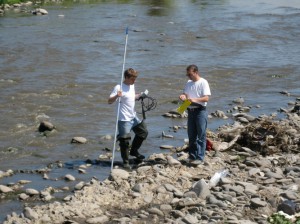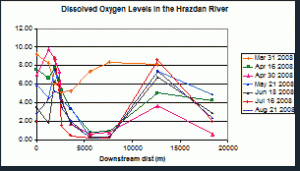Duration: July 2013 – June 2015
American University of Armenia is a Partner for WASTEnet-a Black Sea network promoting natural integrated WAStewater Treatment SystEms within Joint Operational Programme “BLACK SEA BASIN 2007-2013”.
The project’s aim is through sharing resources and competencies for environmental protection and conservation and by promoting cooperation initiatives targeted at innovation in technologies and management of Waste and Wastewater Management Systems to motivate the widest possible audience of local and regional authorities of the participating Black Sea countries to develop and apply Natural Treatment Systems and in particular the Constructed Wetlands for the wastewater treatment of the remote rural communities.
Start Date: 01 July 2013
End Date: 30.06.2015
Visit Project Website: http://www.waste-net.info/
If you are a participant of the 1st “International Scientific Conference on “Sustainable Solutions to Wastewater Management”, please visit here for more information about accommodation.
Duration: 2007-2008
Acopian Center for the Environment
Washington University
 The Hrazdan River is the primary waterway in Armenia and country’s second largest river. While the Hrazdan receives effluent from various agricultural, commercial, industrial, and residential sources, it is most significantly impacted by the discharge of Yerevan’s almost entirely untreated wastewater. The effects of this poorly treated wastewater are evident through a variety of water quality indicators, most notably through drastic drops in dissolved oxygen (DO) levels downstream of the city.
The Hrazdan River is the primary waterway in Armenia and country’s second largest river. While the Hrazdan receives effluent from various agricultural, commercial, industrial, and residential sources, it is most significantly impacted by the discharge of Yerevan’s almost entirely untreated wastewater. The effects of this poorly treated wastewater are evident through a variety of water quality indicators, most notably through drastic drops in dissolved oxygen (DO) levels downstream of the city.
The aim of this study was to quantify the effect Yerevan’s wastewater discharge have on health of the Hrazdan River by monitoring dissolved oxygen levels in an 18-km stretch that began two kilometers upstream of the wastewater outfalls.
Water quality sampling was conducted from March to August 2008. DO levels consistently dropped to below 5% of the saturated dissolved oxygen level (the maximum oxygen content achievable at the given temperature and pressure) and to levels well below those permitting a healthy aquatic ecosystem. DO levels achieved partial re-aeration within the first 10 kilometers after the wastewater outfall, but they depreciated again, likely due to continued biological oxygen demand from agricultural runoff. The 16 kilometers downstream of the wastewater outfalls in the study area were not sufficient for the river to achieve full re-aeration.


Additional water quality, hydrologic, biological, atmospheric, and observational data was also collected during the course of this study and may later be used to generate a predictive model of the DO content of the river under different scenarios.